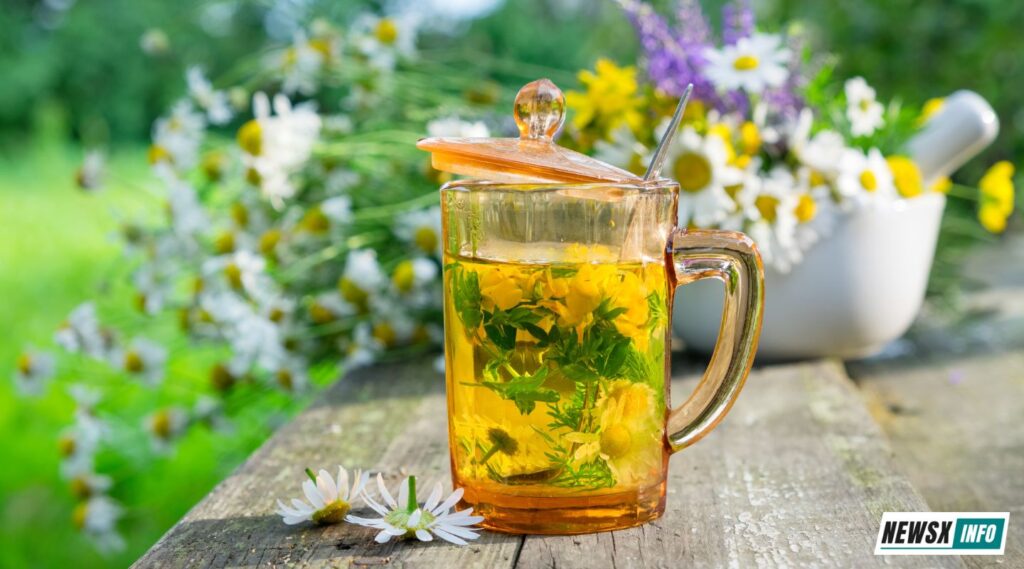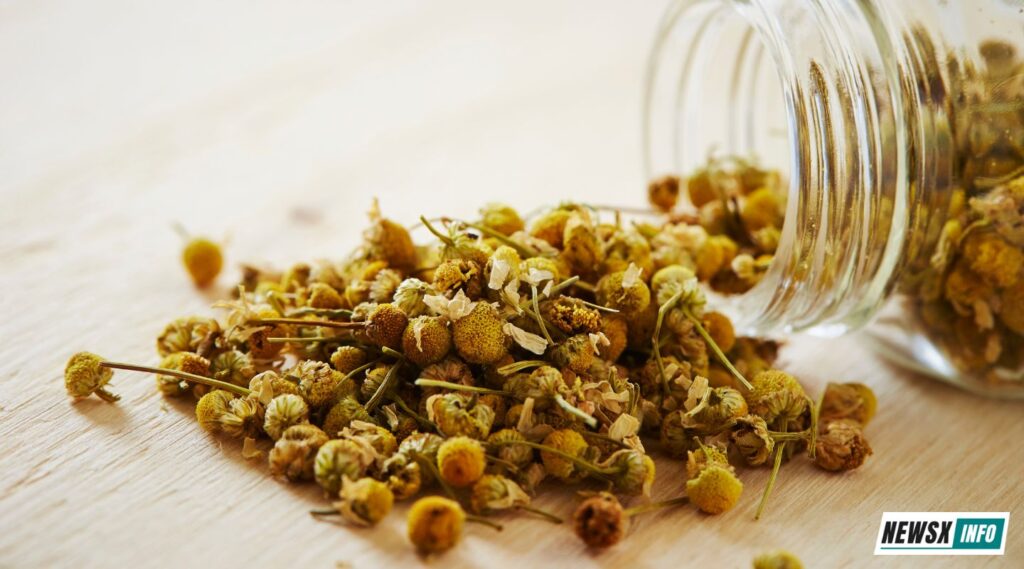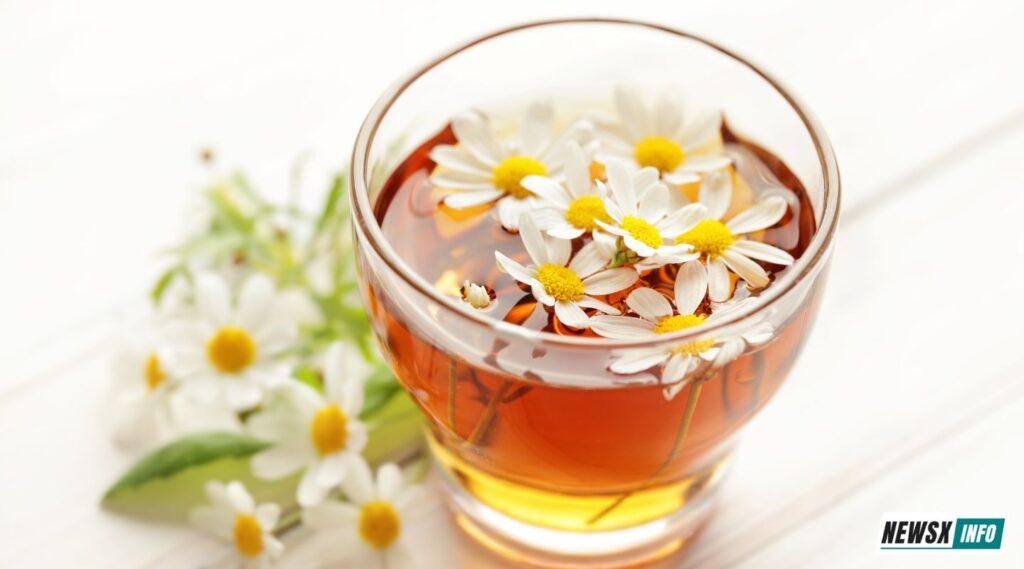For ages, chamomile tea—an infusion of dried chamomile flowers—has been prized as a natural cure for a variety of conditions. Its roots are in prehistoric societies that praised its therapeutic qualities—the Greeks, Romans, and Egyptians among others. Chamomile tea is drank all around today not only for its taste but also for its many health advantages. Supported by scientific study, this article explores the many benefits of chamomile tea and emphasizes why this modest brew is still a mainstay in holistic health regimens.
Historical Context and Cultural Relevancy
Derived from the Greek word chamaimēlon, “ground apple,” chamomile belongs to the Asteraceae family. With German chamomile (Matricaria recutita) and Roman chamomile (Chamaemelum nobile) most often used for tea, it comprises various species. Chamomile has long been valued not only for its therapeutic qualities but also for symbolic meaning. Believing it to be a gift from the gods, the Egyptians devoted chamomile to their sun deity, Ra; the Romans employed it as a flavoring component in beverages and a remedy for a variety of ailments.
Nutritional Profile:
Among the many nutrients and bioactive ingredients in chamomile tea are antioxidants, terpenoids, and flavonoids. Apigenin, quercetin, and luteolin are the main active components causing its therapeutic action. Chamomile tea is a powerful elixir for health and wellness because of these chemicals’ anti-inflammatory, antispasmodic, and antibacterial qualities.

Chamomile Tea’s Health Effects:
1. Helves with insomnia and encourages sleep.
The fact that chamomile tea helps fight insomnia and encourage sleep is among its most well-known advantages. Apigenin, an antioxidant found in chamomile, hooks to particular brain receptors to cause sleepiness and lower anxiety. Many research have confirmed how well it works to raise the quality of sleep. For example, a research written up in the Journal of Advanced Nursing indicated that postpartum women who drank chamomile tea slept better than those who did not.
2. Releases Stress and Anxiety
The relaxing properties of chamomile tea go beyond only encouraging rest. Its anxiolytic qualities make it a great natural cure for anxiety and stress. Studies published in Phytomedicine showed participants’ generalised anxiety disorder (GAD) symptoms were much lowered by chamomile extract. The study underlined the possibility of chamomile as a safe and efficient substitute for traditional anxiety drugs.
3. Digestive Aids
Long used to ease stomach problems, chamomile tea Its anti-inflammatory and antispasmodic actions allow the digestive tract’s muscles to relax, therefore relieving disorders including colic, irritable bowel syndrome (IBS), and indigestion. A study in the Journal of Ethnopharmacology demonstrated that chamomile extract lessened colic and diarrhea in newborns, therefore highlighting its mild yet powerful digestive effects.
4. supports immune system function.
Especially flavonoids, the antioxidants in chamomile tea are quite important for strengthening the immune system. These substances fight inflammation and oxidative stress, therefore impairing the immunological response. Studies in the American Journal of Clinical Nutrition have connected regular intake of chamomile tea to a lower frequency of common colds and illnesses.
5. Eases Menstrual Pain
The antispasmodic qualities of chamomile tea help to ease menstrual cramps as well. Chamomile tea not only lessened the degree of menstruation pain but also helped with related symptoms including anxiety and tiredness, according a study written up in the Journal of Agricultural and Food Chemistry. For ladies trying to get relief from dysmenorrhea, this makes it a great natural cure.

6. Improves Dermal Condition
Chamomile tea’s anti-inflammatory and antibacterial qualities help to explain why it’s a common skincare component. Products with chamomile-infused topicals can help with wound healing, acne reduction, and skin irritation calm-down. Chamomile’s capacity to stop the spread of fungus and germs adds even more to its potency in treating skin disorders. A study on the Journal of Drugs in Dermatology underlined the possibility of chamomile in enhancing the texture and look of skin.
7. Advives Cardiovascular Well-Being
New studies point to chamomile tea possibly improving cardiovascular health. Its great antioxidant value helps lower blood pressure and cholesterol, therefore lowering the risk of heart disease. Regular drinking of chamomile tea was linked to a reduced risk of cardiovascular events, according to a study written up in the Journal of Nutrition, therefore underscoring its possible heart-healthy properties.
8. Oversees Blood Sugar Levels
Blood sugar control was demonstrated to benefit from chamomile tea. The flavonoids in chamomile lower hyperglycemia and improve insulin sensitivity. Participants in a Journal of Endocrinological Investigation study who drank chamomile tea showed notable lower blood glucose levels and better indicators of diabetes management.
9. Anti-Cancer Characteristics
Although more study on the possible anti-cancer effects of chamomile is under progress, first results are encouraging. In cancer cells, the apigenin in chamomile has been demonstrated to cause programmed cell death—that is, death—and to stop tumor growth. Published in the Journal of Clinical Oncology, a study underlined the possible value of chamomile as a supplemental medicine in cancer treatment, especially for its capacity to increase the efficacy of conventional treatments and lower side effects.
10. Encourages dental health.
Antimicrobial qualities of chamomile also apply to oral health. By stopping the growth of mouth-based bacteria, chamomile tea can help prevent gum disease and tooth decay. Chamomile mouthwash’s potential as a natural oral care product is highlighted by studies in the Journal of Clinical Periodontology that indicated it lessened plaque accumulation and gingivitis.

Chamomile Tea Preparation: Methodology
Fresh or dried chamomile flowers will let you easily prepare chamomile tea. This is a basic recipe:
Materials:
- One spoonful of dried chamomile flowers—or two tablespoons of fresh flowers—or both
- One cup of hot water.
- Honey or lemon (not necessary)
Directives:
- Arrange the chamomile blossoms in a teapot or tea infuser.
- Over the blossoms pour the boiling water.
- Depending on intended strength, let the tea steep for five to ten minutes.
- Slink the tea into a cup.
- If you want extra taste, add honey or lemon.
Safety and Forecasts
Although most people find chamomile tea to be generally harmless, one should into consideration any sensitivities and interactions. People who have sensitivities to Asteraceae family plants—such as marigolds or ragweed—should proceed carefully. Furthermore, chamomile can interact with several drugs, including sedatives and blood thinners, thus it is suggested to see a healthcare provider before adding chamomile tea into your daily regimen, particularly if you take prescriptions or have underlying medical problems.
In summary
In natural medicine, chamomile tea is still a beloved cure with great history and several health advantages. Chamomile tea provides a broad range of therapeutic benefits from encouraging sleep and lowering anxiety to improving digestive health and strengthening the immune system. For individuals looking for a complete approach to health and wellness, its mild yet strong qualities make it a perfect fit. Chamomile tea is a timeless monument to the healing power of nature even as study reveals more about this amazing herb.

